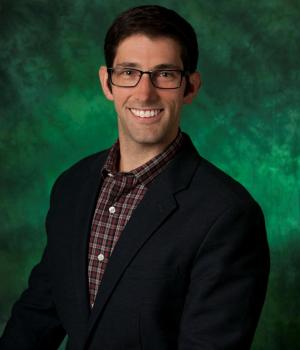- Home
- Academics
- Research
- Departments
- Student Resources
- UNT ELEVAR
- Alumni & Friends
- Faculty/Staff Resources
- About Us
Ronald Schumann III, Ph.D.
Associate Professor

Dr. Schumann is an associate professor in the Department of Emergency Management and Disaster Science. A human geographer by training, Dr. Schumann’s research interests include community recovery, social vulnerability, cultural memory, risk perception, and mitigation. He uses a range of innovative research methods, like photovoice and participatory GIS, to understand the perspectives of disaster survivors and community stakeholders.
Dr. Schumann’s post-disaster fieldwork has taken him across the US to study housing recovery, gathering places, and risk reduction after numerous hurricanes (Katrina, Sandy, Matthew, and Harvey) as well as wildfires (Valley Fire, Tubbs Fire, and Camp Fire). He has previously worked as a sociocultural researcher and historical interpreter for historical sites across the southeastern US and as a Geographic Information Systems (GIS) technician with the engineering firm AECOM.
Dr. Schumann’s publications have appeared in a variety of scholarly journals, including Risk Analysis, Weather, Climate and Society, Applied Geography, and Environmental Hazards. His research on post-disaster recovery and mitigation has been supported by grants from the National Science Foundation and the University of Colorado’s Natural Hazards Center.
Current Research Projects:
Dr. Schumann is collaborating with an interdisciplinary team on a study, funded by the National Science Foundation, that uses photovoice to understand how place attachment has affected housing recovery after recent California wildfires. To learn more about the study, click here.
Also in California, Dr. Schumann is collaborating on a related study that examines the efficacy of community-level wildfire risk reduction efforts after fire including programs for housing recovery, home hardening, defensible space maintenance, and fuels management. To learn more about this study, funded by the Joint Fire Science Program, click here.
Dr. Schumann and a UNT-based research team are working with scientists at the University of Oklahoma and Missouri University of Science and Technology on a study to improve tornado resilience for residents of mobile and manufactured homes in the southeastern US. The project investigates the perceptions of mobile home anchoring or “tie-down” systems and field tests education materials for greater use. To learn more about the study, click here.
Primary Research Interests:
Housing recovery, hazard mitigation, place attachment, cultural memory, commemoration, vulnerable populations
Other Information:
Schumann, R.L., III, Mockrin, M., Binder, S.B., and Greer, A. (2022). “From the Ashes: A study of mitigation policy and practice after wildfire in California.” Natural Hazards Center Mitigation Matters Grant Report Series, 13. Boulder, CO: Natural Hazards Center, University of Colorado Boulder. Available at:https://reliefweb.int/report/world/manchester-briefing-issue-46.
Schumann, R.L., III, and Zavar, E.M. (2022). “Commemorating COVID: Opportunities for Community Recovery and Resilience. The Manchester Briefing on COVID-19 46. The University of Manchester, U.K. Available at:https://doi.org/10.1353/sgo.2021.0026
Schumann, R.L., III, Potter, A, and Cook, M. (2021). “The South Got Something to Say: Resilient Remembering Amid Uncertain Futures.” Southeastern Geographer 61(4).https://doi.org/10.1016/j.ijdrr.2019.101354.
Schumann, R.L., III, Binder, S.B., and Greer, A. (2019). “Unseen Potential: Photovoice Methods in Hazard and Disaster Science.” GeoJournal 84(1): 273-289.https://doi.org/10.1007/s10708-017-9825-4.
Schumann, R.L., III. (2018). “Ground truthing spatial disaster recovery metrics with participatory mapping in post-Katrina Mississippi.” Applied Geography 99: 63-76.https://doi.org/10.1016/j.apgeog.2018.08.003.
940-565-2996
Chilton 308G

